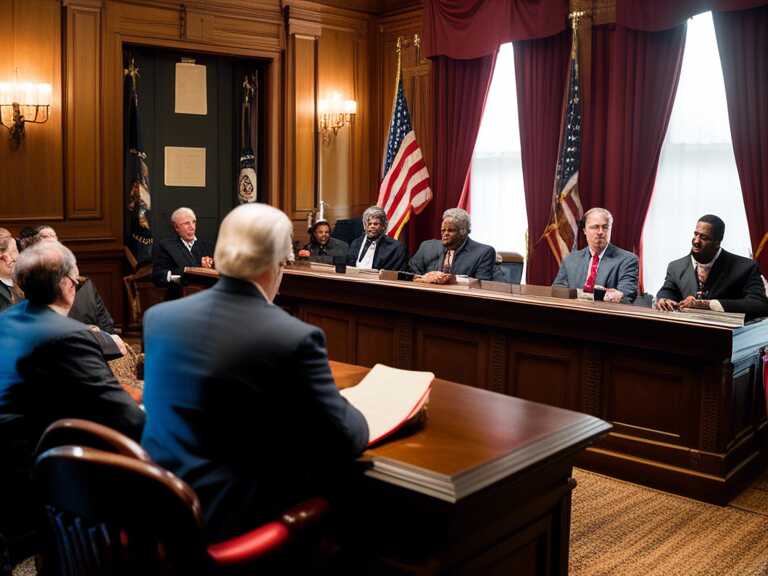
Republican Group Cites Dred Scott Decision to Challenge Eligibility of Kamala Harris, Ramaswamy, Haley
The NFRA cited the Dred Scott decision to argue that Kamala Harris, Vivek Ramaswamy, and Nikki Haley are ineligible for the presidency.

The National Federation of Republican Assemblies (NFRA) has sparked controversy by raising concerns about the eligibility of certain Republican figures and their interpretation of the Constitution.
Challenging Presidential Eligibility
In a move that has drawn attention and criticism, the NFRA has cited the infamous 1857 Dred Scott Supreme Court decision, which declared that enslaved people were not citizens, as the basis for arguing that Vice President Kamala Harris is not eligible to run for president in accordance with the Constitution. The group has also contested the right of Vivek Ramaswamy and Nikki Haley to appear on Republican primary ballots.
Constitutional Qualifications
The NFRA's platform and policy document specifically references the "Constitutional qualifications of Presidential eligibility," emphasizing the requirement that "No person except a natural born Citizen, shall be eligible, or a Citizen of the United States, at the time of Adoption of this Constitution, shall be eligible to the Office of President." This raises significant questions about the interpretation of the Constitution in the context of modern-day politics.
Redefining Citizen Eligibility
According to the NFRA's document, a natural-born citizen is defined as a person born on American soil to parents who are both citizens of the United States at the time of the child's birth. This strict definition has been attributed to the originalist and strict constructionist perspective, particularly championed by Supreme Court Justices Antonin Scalia and Clarence Thomas.
The Dred Scott Decision and Historical Context
In invoking the Dred Scott decision, the NFRA has ignited a contentious debate. The 1857 ruling, which predates the US Civil War, asserted that enslaved people could not be citizens and were therefore not entitled to protection from the courts or the federal government. Furthermore, it stipulated that Congress did not have the authority to prohibit slavery in federal territories. The historical significance of this decision in shaping the trajectory of the United States adds complexity to the current discourse surrounding citizenship and eligibility for high office.
Legal Precedents and Political Implications
The NFRA's platform document not only draws on the Dred Scott decision but also cites six cases to support its argument. The inclusion of former President Donald Trump's running mate Ohio Senator JD Vance in the list of preferred vice presidential candidates further accentuates the political implications of the group's stance.
2024 Presidential Primary Ballots
Looking ahead to the 2024 Republican presidential primary ballots, the NFRA is resolute in its position, asserting that only candidates who meet the natural-born citizenship standard, as interpreted through an originalist and strict constructionist lens, should be considered. This sets the stage for a potentially contentious selection process within the Republican party.
Endorsement and Response
Notably, the NFRA endorsed former President Donald Trump during their October convention. In response to the ensuing controversy, the group's president, Alex Johnson, conveyed a dismissive stance towards the media's portrayal of the document, stating that referencing a court case in a comprehensive document should not be equated to endorsing every facet of the case. Johnson further expressed strong opposition to Vice President Kamala Harris, labeling her as a "faux Democrat" and condemning what he perceives as the Democratic Party's strategy of sowing division based on race and class.
Historical Figures and Legal Contradictions
The NFRA's interpretation of citizenship eligibility would not only impact current figures such as Kamala Harris, Nikki Haley, and Vivek Ramaswamy but also raises questions about the historical eligibility of past presidents. By applying their stringent criteria, the NFRA's position would render renowned leaders such as George Washington, John Adams, Thomas Jefferson, and James Madison ineligible to hold office, based on the nationality of their parents.
Share news















